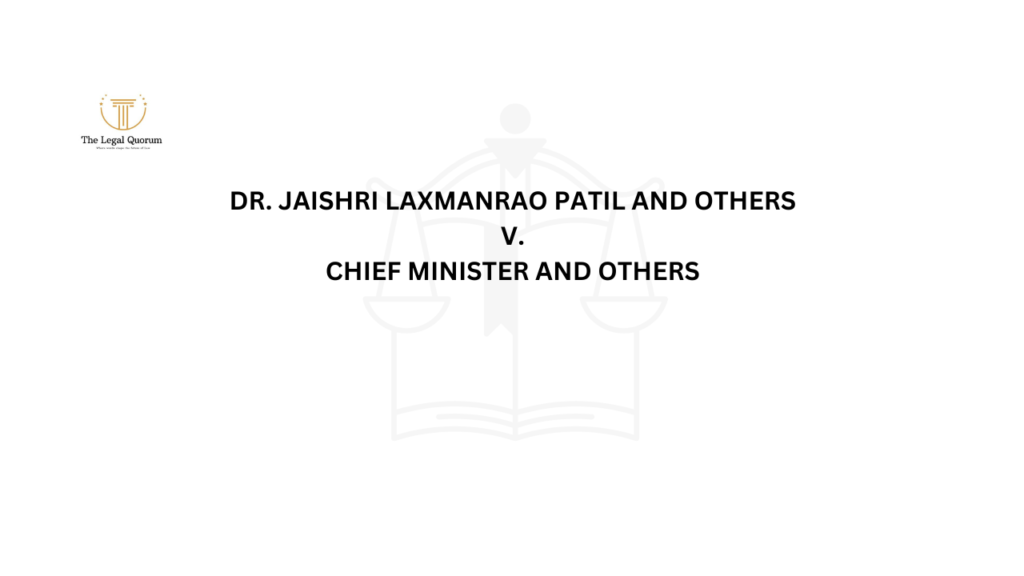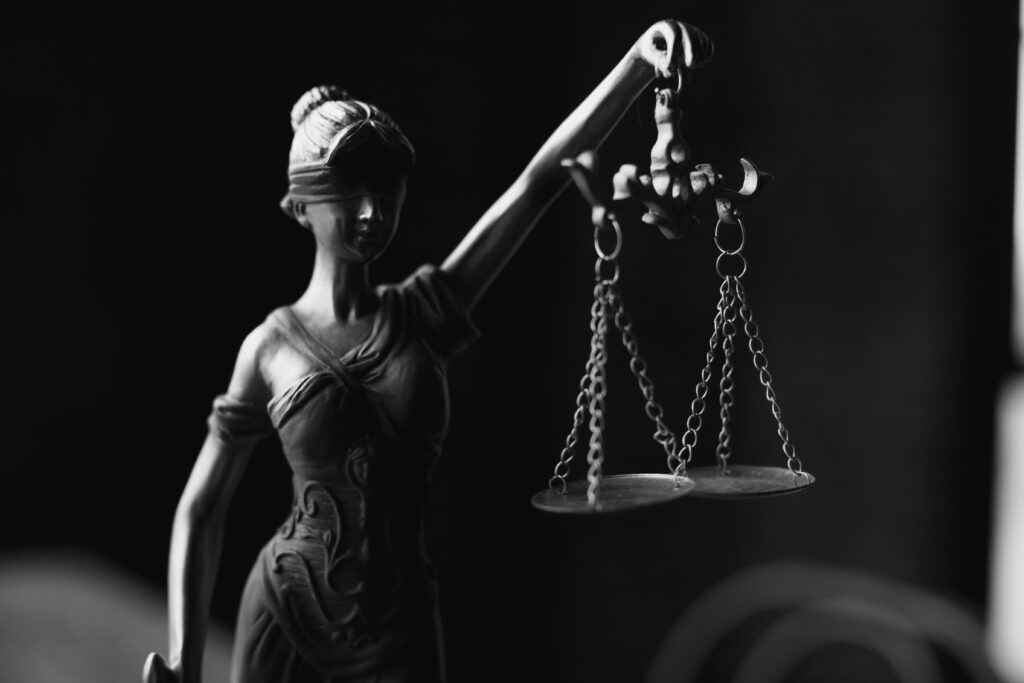Published on: 16th November 2025
Authored by: Manasvi Joshi
Symbiosis Law School, Hyderabad
COURT: Supreme Court of India
BENCH: Chief Justice J.S. Khehar (who delivered the main judgment), Justice Kurian Joseph, Justice Rohinton Fali Nariman, Justice Uday Umesh Lalit, Justice S. Abdul Nazeer
DATE OF THE JUDGEMENT: August 22, 2017
RELEVANT STATUTES/KEY PROVISIONS:
(i) Constitutional Provisions
- Article 14– Right to Equality before law
- Article 15– Prohibition of discrimination on grounds of religion, race, caste, sex, or place of birth
- Article 21– Right to life and personal liberty
- Article 25– Freedom of conscience and right to freely profess, practice and propagate religion
(ii) Statutory Provisions
- The Muslim Personal Law (Shariat) Application Act, 1937
- The Dissolution of Muslim Marriages Act, 1939
- Various provisions of the Indian Penal Coderelating to marriage and divorce
BRIEF FACTS OF THE CASE:
The case was initiated by Shayara Bano, a Muslim woman from Uttarakhand, who filed a writ petition challenging the constitutional validity of triple talaq (talaq-e-biddat), nikah halala, and polygamy as they are practised under Muslim personal law. In her petition, she argued that these practices infringed upon her fundamental rights as guaranteed by the Constitution.
Shayara Bano’s own story was the main reason behind the case. She had been divorced by her husband through the pronouncement of triple talaq, which she asserted was arbitrary, unconstitutional, and a violation of her rights. Her petition was bolstered by the support of several other women who had encountered similar situations.
The case got a lot of attention across the country, bringing up questions about whether personal law practices fit with the country’s fundamental laws. The petitioners contended that these practices were not only discriminatory toward women but also violated the fundamental framework of the Constitution.
ISSUES INVOLVED:
- Whether the practices of triple talaq (talaq-e-biddat), nikah halala, and polygamy under Muslim personal law are violative of fundamental rights guaranteed under Articles 14, 15, and 21 of the Constitution?
- Whether these practices can be considered essential religious practices protected under Article 25 of the Constitution?
- The extent to which personal laws can be subjected to constitutional scrutiny and fundamental rights challenges.
- Whether the state has the authority to regulate personal law practices that may be discriminatory?
- Finding a fair way to respect both religious freedom and gender equality when it comes to personal laws.
ARGUMENTS:
Petitioner’s Arguments:
- Violation of Fundamental Rights: The petitioners argued that these practices fundamentally violate Articles 14, 15, and 21 of the Indian Constitution. They contended that triple talaq, nikah halala, and polygamy are discriminatory against women, undermining their rights to equality, dignity, and personal liberty. The people who filed the petition pointed out that these practices keep women stuck in gender inequality and financial instability, which goes against their constitutional rights.
- Not an Essential Religious Practice: The petitioners asserted that these practices do not constitute essential aspects of the Islamic faith. By invoking Article 25, which protects the freedom of religion, they claimed that the practices in question have been mischaracterized as fundamental to Islam. They argued that many interpretations exist within the faith that do not endorse these practices, and therefore, the legal system should not protect them.
- Arbitrary Nature: The arbitrary nature of triple talaq was a key focus for the petitioners. They pointed out that a husband can pronounce talaq unilaterally and without justification, often without any prior communication or attempts at reconciliation. This lack of due process not only leads to the abrupt dissolution of marriages but also leaves women vulnerable and unprotected, thus raising serious concerns about fairness and justice.
- International Standards: The petitioners referenced progressive reforms in several Islamic countries, such as Tunisia and Egypt, where practices like triple talaq and polygamy have been either abolished or strictly regulated. They argued that these changes reflect a global shift towards ensuring women’s rights and aligning religious practices with contemporary human rights standards.
Respondent’s Arguments:
- Religious Freedom: The respondents maintained that these practices are an integral part of Muslim personal law and should be protected under Article 25, which guarantees the right to freely practice one’s religion. They argued that any interference by the state would constitute an infringement on their religious autonomy and could set a dangerous precedent for other religious communities.
- Personal Law Immunity: They contended that personal laws, which govern family and marriage matters within specific religious contexts, are inherently outside the purview of constitutional scrutiny. The respondents argued that it is the prerogative of the religious community to reform personal laws, rather than the judiciary imposing changes from above.
- Legislative Domain: The respondents emphasized that any modifications to personal law should be pursued through the legislative process, allowing for a broader debate and consideration within the community. They argued that judicial intervention could lead to a destabilization of community practices that have been handed down through generations.
- Community Autonomy: The importance of maintaining the autonomy of religious communities was a focal point. People said that every community should be able to handle its own matters, sticking to its beliefs and traditions, without outsiders getting involved. They argued that reforms should emerge organically from within the community, respecting their cultural identity and heritage.
JUDGEMENT:
The Supreme Court delivered a landmark judgment with a 3:2 majority, declaring triple talaq (talaq-e-biddat) unconstitutional and void. The judges presented differing rationales for their decisions.
(i) Majority View (3 judges):
Justice Rohinton Nariman, writing for himself and Justice Lalit, determined that triple talaq was not protected under Article 25, as it did not constitute an integral part of religious practice. They found the practice to be arbitrary and in violation of Article 14. Justice Kurian Joseph, in a separate but concurring opinion, asserted that triple talaq contravenes the fundamental principles of the Holy Quran and, therefore, is not protected by Article 25.
(ii) Minority View (2 judges):
Chief Justice Khehar and Justice Nazeer acknowledged the problematic aspects of triple talaq, but contended that the issue should be treated as a matter of personal law, best addressed through legislative reform rather than judicial intervention. They urged Parliament to enact appropriate legislation within six months.
The court’s reasoning was founded on several key principles:
- The practice of triple talaq was classified as arbitrary and lacking a rational basis.
- It violated the principles of equality and non-discrimination.
- The practice was not deemed an essential religious practice protected by the Constitution.
RATIO DECIDENDI:
The ratio decidendi of the case establishes several important legal principles:
- Personal laws are subject to constitutional scrutiny: Personal law practices cannot claim immunity from fundamental rights challenges merely on the grounds of religious sanction.
- Arbitrary practices violate Article 14: Any practice, whether religious or otherwise, that is arbitrary and lacks rational basis violates the right to equality under Article 14.
- Essential religious practice test: Only those religious practices that are essential and integral to the religion are protected under Article 25.
- Gender equality in personal laws: Personal law practices that discriminate against women and violate their dignity are constitutionally impermissible.
OBITER DICTA:
- The court observed that reform in personal laws should ideally come from within the community, but when such reform is not forthcoming, constitutional courts have a duty to intervene.
- The judges noted that many Islamic countries have reformed or abolished the practice of triple talaq, indicating that such reform is not inconsistent with Islamic principles.
- The court emphasized that religious freedom cannot be used as a shield to perpetuate practices that violate fundamental rights, particularly those of women.
- People talked about the idea of having a common civil code, but it wasn’t decided one way or the other in the case.
FINAL DECISION:
Who Won the Case? The petitioners, led by Shayara Bano, successfully won the landmark case with a narrow majority of 3:2 in the Supreme Court.
What Was Upheld or Struck Down?
- The practice of triple talaq, or talaq-e-biddat, was officially declared unconstitutional and no longer valid i.e., void. This decision shows that the court is serious about protecting women’s rights and respecting their dignity. It emphasizes the importance of fairness and equal treatment for everyone.
- However, the court chose not to make a definitive ruling on the practices of nikah halala and polygamy. Instead, it said these problems need their attention and legal look in future cases. It shows we still need to discuss and think about gender justice when it comes to marriage practices.
- As a result of this judgment, the practice of triple talaq no longer has any legal power. It’s a big change in how marriage and divorce are viewed legally in the country. The decision is viewed as a progressive step toward safeguarding women’s rights and promoting gender equality within the framework of personal laws.
Immediate Impact – The decision provided immediate relief to Muslim women by declaring the practice of instant triple talaq as unconstitutional. Subsequently, Parliament enacted The Muslim Women (Protection of Rights on Marriage) Act, 2019, making triple talaq a criminal offence.
REFERENCES
[1] Shayara Bano & Ors v Union of India & Ors (2017) 9 SCC 1
[2] All India Reporter 2017 SC 4609
[3] The Constitution of India, Articles 14, 15, 21, and 25
[4] The Muslim Personal Law (Shariat) Application Act 1937
[5] The Muslim Women (Protection of Rights on Marriage) Act 2019
[6] “Shayara Bano v. Union of India and Ors. AIR 2017 SC 4609” (Drishti Judiciary) https://www.drishtijudiciary.com/landmark-judgement/muslim-law/shayara-bano-v-union-of-india-and-ors-air-2017-sc-4609
[7] Legal-Lore, “SHAYARA BANO v. UNION OF INDIA AND ORS. (TRIPLE TALAQ CASE)” (Legal-lore, November 15, 2022) https://www.legallore.info/post/shayara-bano-v-union-of-india-and-ors-triple-talaq-case
[8] Mahawar S, “Shayara Bano v. Union of India – iPleaders” (iPleaders, November 1, 2022) https://blog.ipleaders.in/shayara-bano-v-union-of-india/
on of India – iPleaders” (iPleaders, November 1, 2022) https://blog.ipleaders.in/shayara-bano-v-union-of-india/




